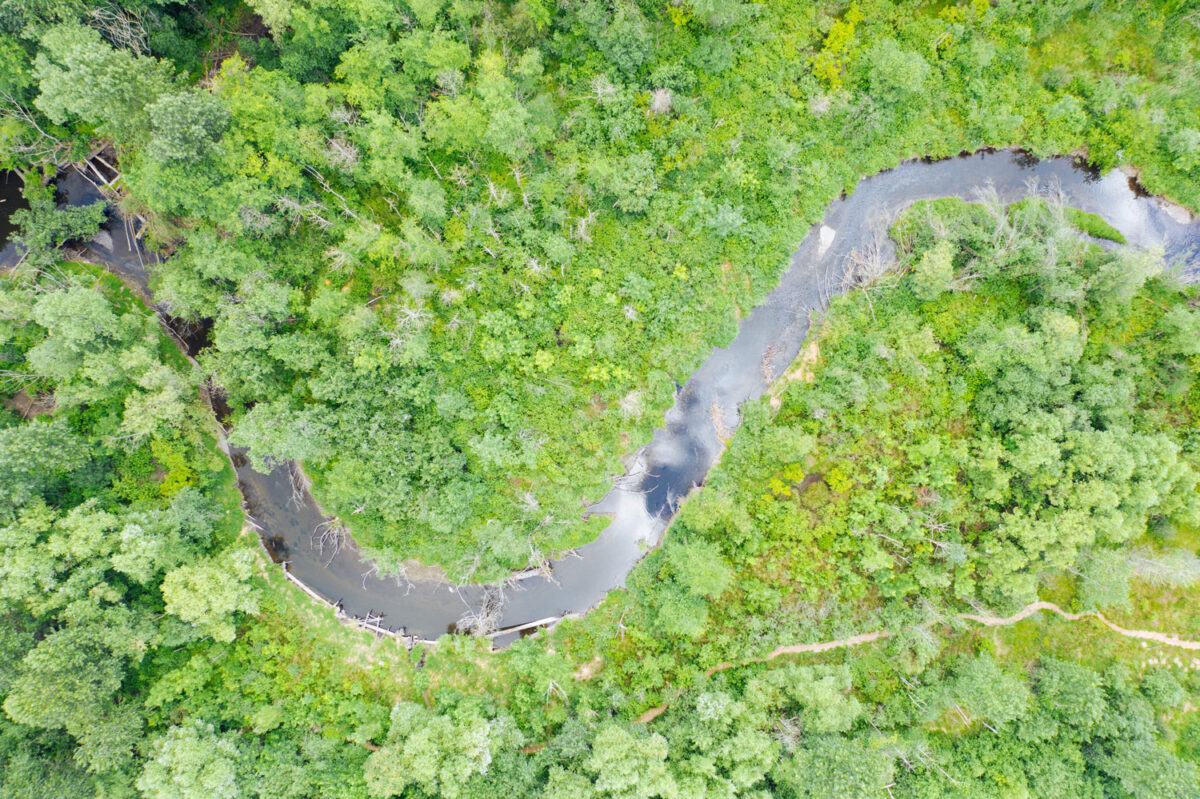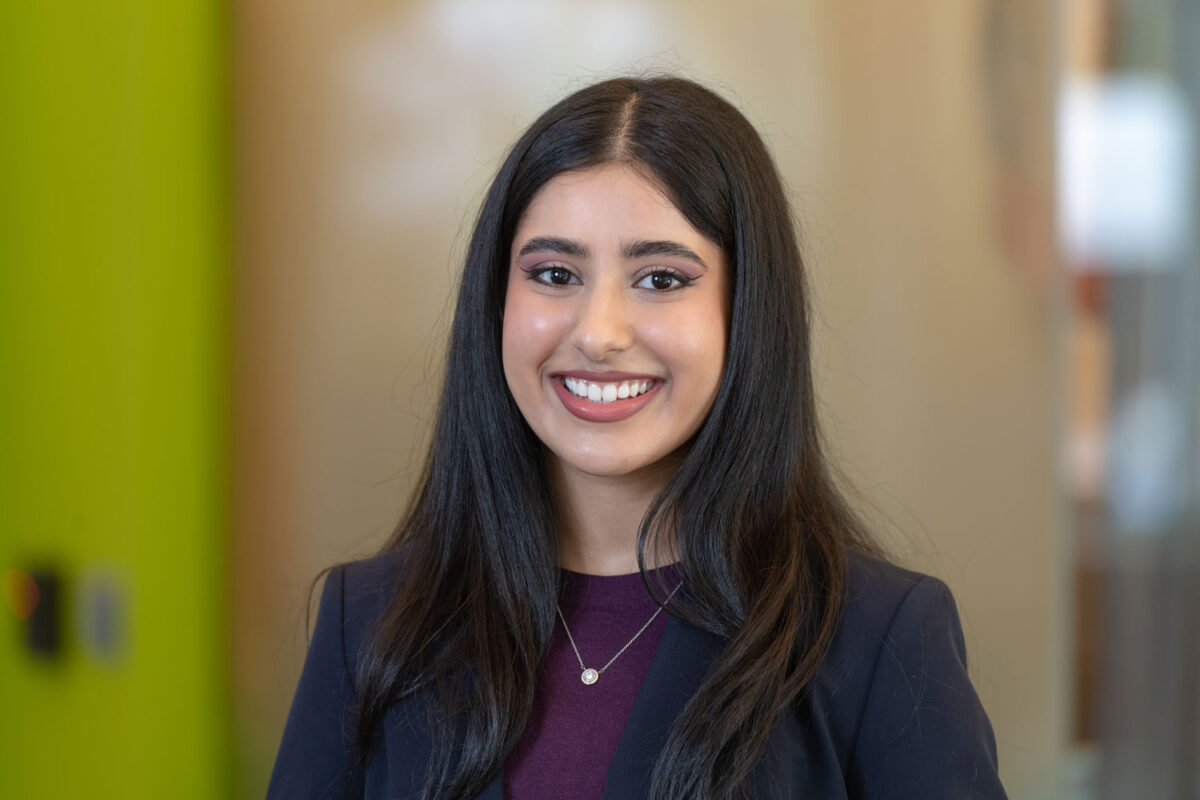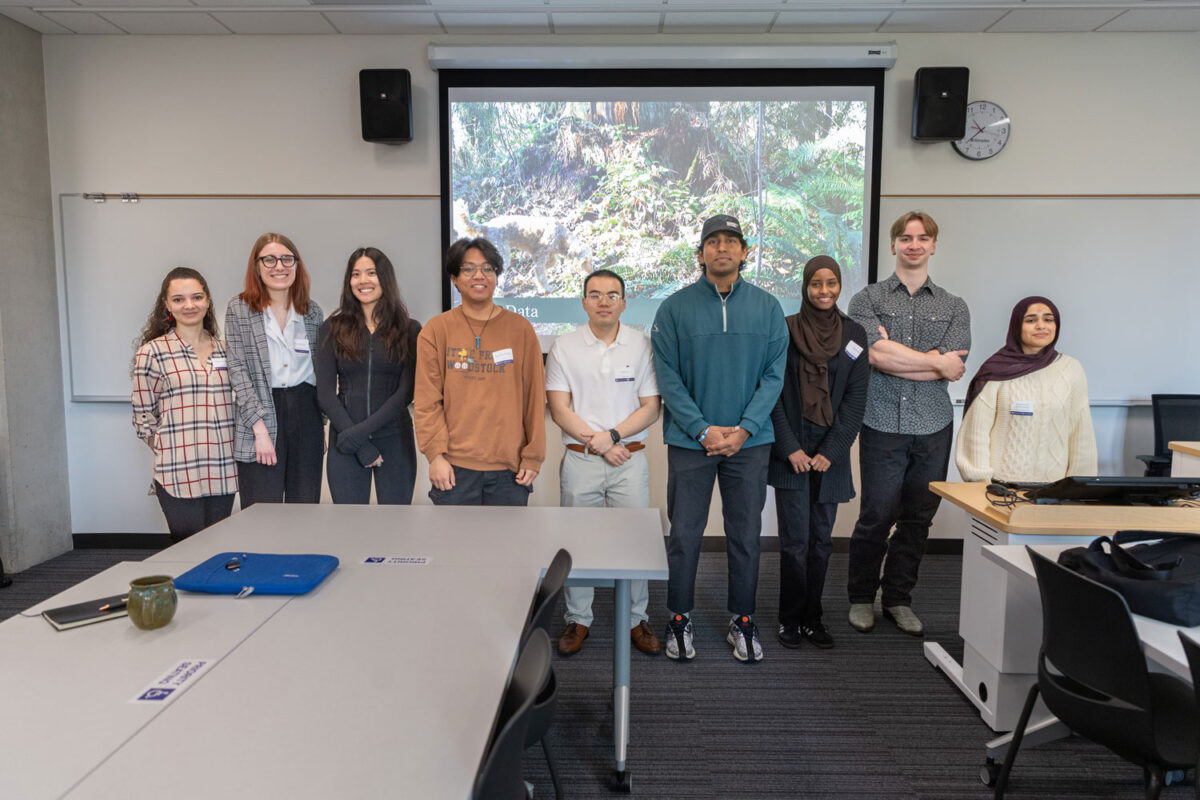From Jan. 23 to 26, the University of Washington Bothell hosted Pathways to Academic Engagement Week, a four-day event consisting of virtual and in-person sessions with professors, industry professionals, advisers and representatives from career services and co-curricular services. During the week, students could network, explore major programs and career paths, and hone in on their academic and professional goals.
One feature of the week was a Social Justice Career Panel, where students had the opportunity to hear from School of Interdisciplinary Arts & Sciences graduates Estephanie Guzman, Manveer Sandhu and Mary Jane Topash, who currently work in social justice careers.
During the panel hosted by the Gender, Women & Sexuality Studies program, they shared how their educational and extracurricular experiences at UW Bothell, and especially within the School of IAS, amply prepared them for their lives as social change agents.
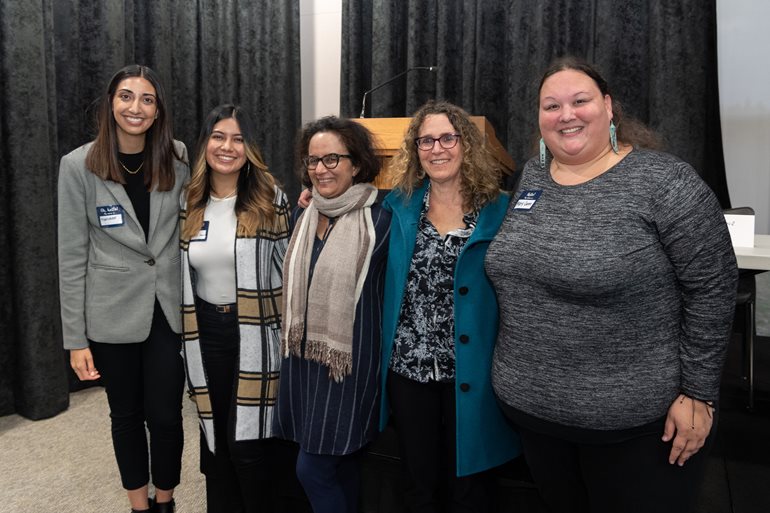
Transferable skill building
All three alumni discussed how their flexible studies in IAS helped them adapt in different professional situations.
“The interdisciplinary aspect of the IAS degrees is so useful,” said Sandhu. “The world is not siloed, everything’s connected, and the fact that teachers taught that way was really appealing to me, especially going into law.”
Sandhu ‘16, received her bachelor’s degree in Law, Economics & Public Policy before attending law school. She is now a policy analyst with the Washington State Office of the Attorney General. “The skills you learn are transferable and can help you be successful, no matter what you try to do,” said Sandhu, who opted to use her law degree to work in public policy instead of becoming a practicing attorney.
Guzman ’20 is a program coordinator for early intervention, resilience and inclusion at WestEd, a nonprofit organization headquartered in San Francisco that works to improve learning for people of all ages. She uses her bachelor’s degree in Gender, Women & Sexuality Studies in her work. She has also applied skills she learned outside of class while at UW Bothell, she said, noting that much of her professional responsibilities rely on project management skills. “I learned those skills through the Women in Business club.”
Topash, who graduated in 2017 with a Master of Arts in Cultural Studies degree, said that aside from her coursework, learning fundamental competencies — such as critical thinking and academic writing and editing — are skills she uses daily.
“The classes I took were eye-opening,” said Topash, the assistant director of cultural education initiatives at the UW’s Burke Museum. “And the skill sets that I didn’t think I would ever use again, I ended up using. Every class I took enhances my work in one way or another.”
Building like-minded community
When it comes to social change work, the alumni also all agree that sharing their passion and drive to influence change with others makes their work more rewarding and effective. For Guzman, Sandhu and Topash, this sort of community-building and collaboration began at UW Bothell.
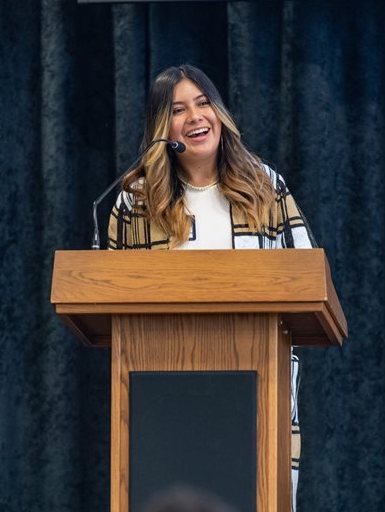
“The sense of community at UW Bothell] was a facilitator to my personal growth,” said Sandhu, who says the smaller size of the campus made making friends and networking more approachable.
Guzman, likewise, said the UW Bothell community “allowed me to feel comfortable and speak up in class.” Guzman’s major was also small, allowing her to forge deep connections with her classmates — some of whom were LBGTQIA — that informed her career direction and awareness of her privilege.
“It was cool because I would see the same students again each quarter,” said Guzman. “I loved learning their stories. I had never before realized that I have so much privilege as a cis woman and that there are so many inequalities that non-cis people face.”
Additionally, Guzman participated in extracurricular activities that helped her get where she is today. “I was involved in a variety of clubs, I worked at the Student Diversity Center and then with the Orientation & Transition Programs. I also worked with Dr. Julie Shayne, teaching professor in the School of IAS.
“That experience helped me build my future career network.”
Inspiration for social change careers
The inspiration for seeking a career in social justice often comes from experiencing or witnessing social injustice — and the drivers for these alumni are no exception.
In considering her motivations, Guzman discussed the struggles she faced as the daughter of immigrants. “My parents face injustices just because they emigrated from Mexico, and I share their passion to fight for those least represented,” Guzman said. “I have also seen my mom break those generational and patriarchal standards set for women because of their biology.
“There are many people who don’t have a voice, so it’s our duty as privileged individuals with resources to raise awareness.”
Topash, who is a member of the Tulalip Tribes, has also faced a lot of misunderstanding and racism in response to her Native American identity, and that continues to drive her in her work at the Burke Museum today.
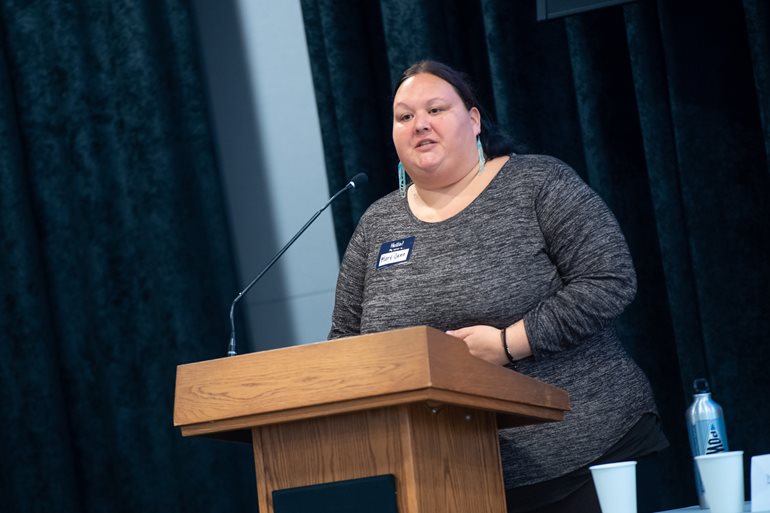
“You know, there are always snide comments and microaggressions,” she said. “I’ve just learned to deal with the public and tried to explain Native American culture to those who have very little knowledge of it. It’s one way to facilitate unlearning years misinformation.”
Topash’s passion for activism around Native American issues grew while attending UW Bothell. In fact, she attended her first protest when a professor took her class to picket at the Ballard Locks as part of the “Water is Life” movement. “We went as a class to protest the Army Corps of Engineers, which built the locks,” she said.
Imagining a different way
For Sandhu, her drive for social justice comes from her experience of being a brown woman in the United States and, while at UW Bothell, discovering restorative justice through Bothell Youth Court.
Co-founded by Dr. Camille Walsh, associate professor in the School of IAS, the program at the City of Bothell Municipal Court, BYC is a community-based intervention and prevention program that provides an alternative response for first-time, traffic infraction offenders.
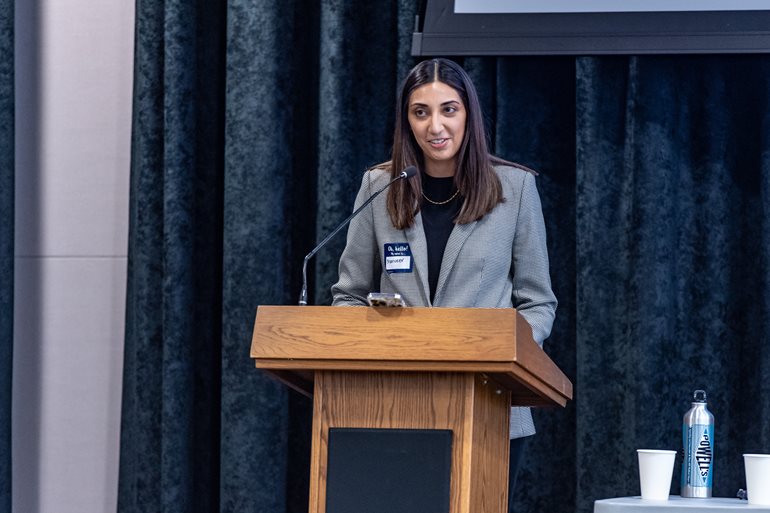
“The program was very focused on 16- and 17-year-olds who had a speeding ticket or something really minor,” Sandhu said. “Instead of putting them through the punitive system, they go to a court of their peers.
The program, she noted, is designed to addresse the root issues of the infractions so that the young offenders can learn how to take ownership for their actions and give back to the communities they may have affected.
“That was my first look into how things could be different,” she said. “It really influenced the trajectory of my career and the kinds of places I’ve chosen to work.”
Insight for current students
While the panelists described their love for their work, they also conveyed to current UW Bothell students the realities of working in a field such as social justice.
“Social change and social justice are careers that can be very heavy and burdensome, especially if you’re a person of color,” said Sandhu. “Knowing that and having a good support system and ways to disengage are really important.”
Topash’s advice is to “find your passion and what your motivator is. I went to school not knowing what they were,” she said. “My classes and the issues we discussed are what fueled me.”
Topash also highlighted another demanding part of social justice roles: the need to educate others, especially around ideas and topics that appear fundamental and obvious. “Things that sound basic to you can be really eye-opening to some. It’s a re-education and an unlearning,” she said.
Guzman, lastly, advised students to remember to zoom out and keep up their own personal learning. “Explore different topics,” she said. “There are many ways people suffer injustices, so we must broaden our understanding.
“We must keep working to improve ourselves and bring awareness to different injustices.”
